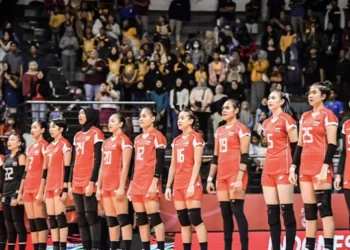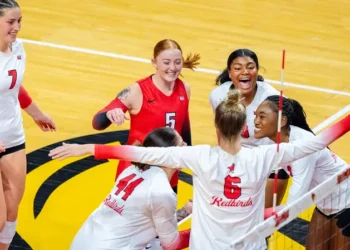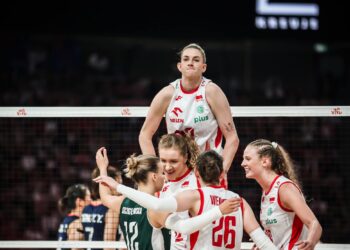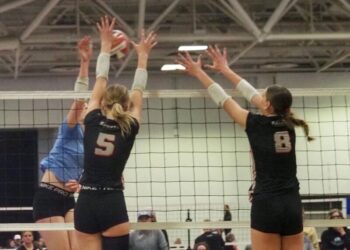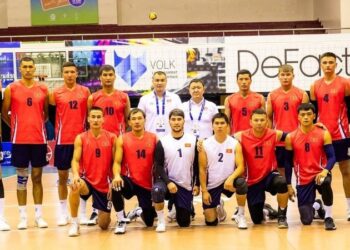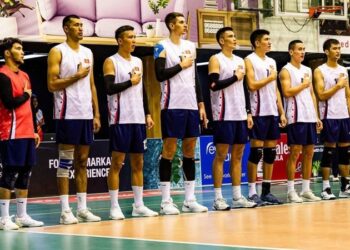The Cuban women’s volleyball team has been forced to withdraw from an important tournament in Puerto Rico after their visa applications were denied, dealing a major blow to the players’ hopes of international competition and highlighting the enduring tensions between Cuba and U.S. territories.
The team was slated to participate in the 2025 NORCECA Women’s Continental Championship, a key regional event that serves as a qualifier for upcoming international competitions, including the World Championships and the Pan American Games. The tournament, set to be held in San Juan, Puerto Rico, was expected to feature some of the best teams in North America, Central America, and the Caribbean.
According to the Cuban Volleyball Federation, the denial came despite months of preparation and repeated attempts to secure the necessary travel documents. Officials in Havana expressed frustration at what they described as an “unjustifiable” decision that deprives the athletes of the chance to compete at the highest level.
“This is extremely disappointing for our players and our fans,” a statement from the Cuban federation read. “These young women train year-round with very limited resources, and their only reward is to represent their country with pride. Denying them this opportunity is a setback not only for Cuban volleyball but for the spirit of fair play in sport.”
Puerto Rico, as a U.S. territory, falls under U.S. immigration policy. While sports visas are typically processed for international competitions, political factors have long complicated travel for Cuban athletes, artists, and officials hoping to participate in events on U.S. soil or in U.S. territories.
The U.S. State Department has not publicly commented on the specific reasons for the denial, but some analysts point to the strained relations between Washington and Havana, which have seen little thaw in recent years. Sanctions, diplomatic restrictions, and decades-old Cold War policies continue to impact Cuban nationals’ ability to travel freely for work, sports, and cultural exchanges.
The incident has sparked criticism from sporting organizations and volleyball fans across the region. The NORCECA Confederation expressed “deep regret” over the situation, saying the absence of the Cuban team would weaken the level of competition and deny other teams the chance to face one of the region’s historic volleyball powerhouses.
Cuba’s women’s volleyball team has a proud legacy, once one of the most dominant teams in the world. They famously won three consecutive Olympic gold medals in 1992, 1996, and 2000, and have produced some of the sport’s most iconic players. However, in recent years, the team has struggled with funding issues and the emigration of talented athletes seeking opportunities abroad.
For the players themselves, this latest setback is particularly painful. Many of the current squad members are young talents hoping to gain experience on the international stage. Several have never competed outside of Cuba. The tournament would have offered vital exposure and a chance to measure themselves against rivals like the United States, Dominican Republic, and Puerto Rico.
Instead, the team will remain in Havana, where they are reportedly scrambling to arrange training camps and friendly matches to maintain momentum for future competitions. Cuban sports officials have called on NORCECA and the International Volleyball Federation (FIVB) to advocate for better guarantees that athletes will not be caught up in political disputes beyond their control.
This is not the first time Cuban athletes have faced travel restrictions due to visa issues. Similar problems have affected baseball players, boxers, and track and field competitors in the past. In some cases, athletes have defected while abroad, further complicating travel arrangements for future teams.
Despite the setback, the Cuban women’s team vows to continue preparing for upcoming regional events and remains hopeful that they will be able to participate in future qualifiers for the 2026 World Championship cycle and the next Olympic Games.
The controversy has reignited calls from sports bodies and human rights advocates for politics to stay out of sport, reminding the world that for many athletes, the chance to compete on equal footing is about more than medals — it is about dignity, growth, and the universal values that
sport is meant to uphold.

